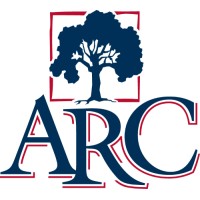Environmental Conservation Technician (Water Resources) Certificate (Certificate)
American River College
Sacramento, CA
This certificate advances the understanding of ecological systems and their interrelationships, including those with human society. It focuses on ecology, field methods and study design, and conservation and management of ecosystems and natural resources, with an emphasis on water resources. It provides a historical perspective on water development and explores current and projected water issues. Surface water and groundwater systems are considered, with an emphasis on the interdisciplinary nature of sustainable water resource management that balances urban, agricultural, industrial, and environmental water needs. The implications of water rights and key water policies are considered in evaluating how water is used and exploited.
This program prepares students for entry-level water resources aide/technician positions in a variety of industries and settings, including private firms, nonprofit organizations, educational institutions, and government agencies at the local, state, and federal levels. Students receive not only rigorous instruction in the theory and application of environmental sciences but also unique hands-on training in water resources conservation and management, preparing them for positions in environmental consulting and planning, water conservation, hydrological research, and other fields.
Student Learning Outcomes
✔ apply the scientific method and critical analysis to environmental investigations
✔ evaluate natural resource systems, including their past and present use and management and future sustainability
✔ analyze social, ethical, and biological implications of environmental management alternatives
✔ identify ecological phenomena in one's everyday experiences and apply ecological principles to understand local, national and global environmental issues
✔ assess the relationships of plants and animals to their environment and to each other
✔ measure and analyze the physical environment of plant and animal populations
✔ evaluate basic land survey, water quality, vegetation, and wildlife data
✔ examine the significance of biodiversity conservation
✔ describe the hydrologic cycle in both natural and urban environments, including key characteristics of surface water and groundwater resources and the interactions between these
✔ investigate the components of integrated water resources planning and management, including evaluation of water policy initiatives and determination of water rights
✔ analyze future water sustainability scenarios under uncertain conditions, including impacts of drought and climate change





